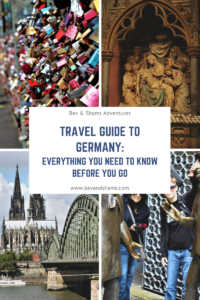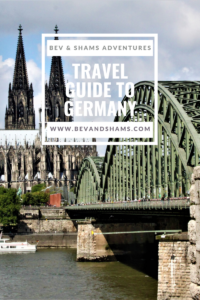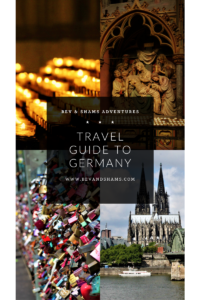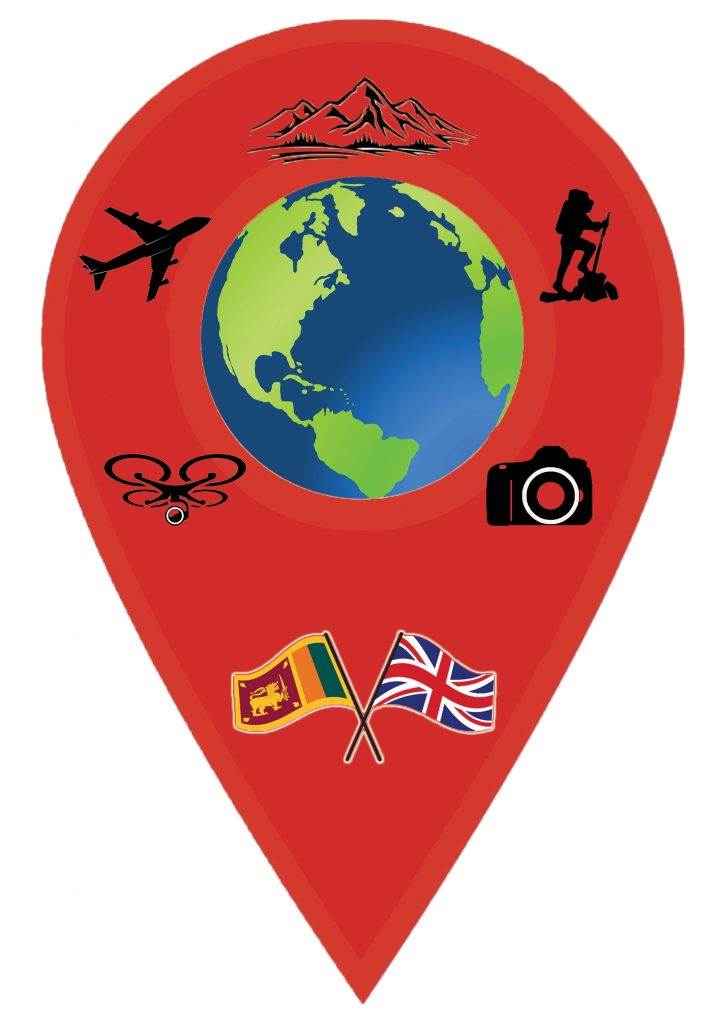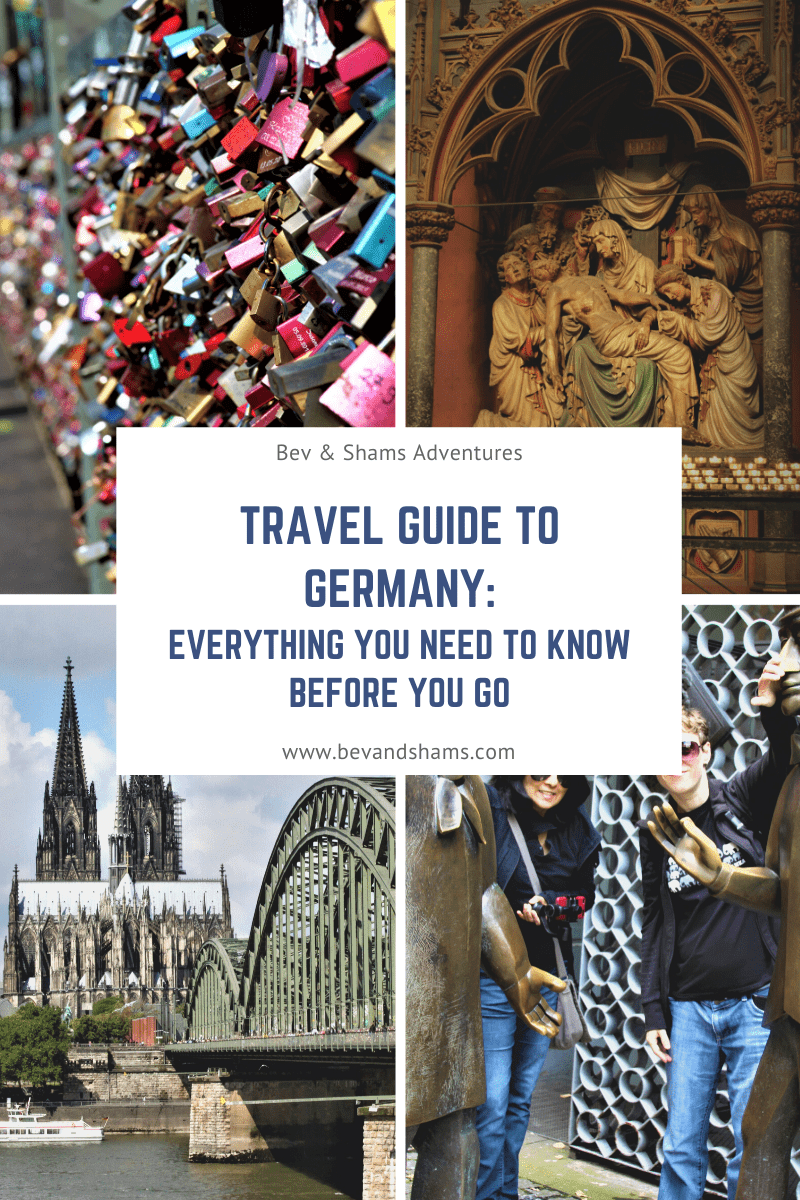Travel guide to Germany: Everything you need to know
Germany has had a big impact on the world over the years from the manufacture of the motor car, to Hitler in World War II. As you explore the regions of Germany, you’ll discover so much history, the most stunning castles, art museums, nightlife and more. But before you go, there are just somethings you should know before you go, which we cover in this travel guide to Germany.
Before any trip, you should always research the country, including how to stay safe, the currency, the language and so much more. In our travel guide to Germany, we help you have the best holiday, by providing tips on when to travel, visa requirements, how to stay safe, staying on budget and more.
Table of Contents
Travel guide to Germany: Everything you need to know before you go
Travel to Germany made easier with this simple travel guide to everything you need to know before you go.
Country Facts
Area: 357,022 sq km
Capital: Berlin
Population: 83,166,711
When to travel
The weather in Germany is seasonal. During the winter, the weather is bitterly cold and icy, while the summer will be hot and sunny.
But when is the best time to travel to Germany?
If you are looking to visit when the weather is at its best then the summer time should be when you book your holiday.
But if you’re budget travellers, then travelling either off season when the weather is the coldest and prices are cheapest. Or, we would recommend travelling during the shoulder months of March to May or September to October. The weather is getting warm but prices are still very low.
Health
You do not require any jabs or vaccinations before travelling to Germany. However, we might recommend that you are up to date with your booster jabs.
Health care is readily available, should you require medical treatment. Standard over the counter medical supplies such as painkillers, cold and flu remedies etc., can be purchased in pharmacies.
We would recommend obtaining an EHIC card (European Health Insurance Card) before you travel. EHIC cards can only be obtained by European citizens and covers most medical care and non-emergency treatment.
Visa
EU (European Union) and EEA (European Economic Area) citizens on a short stay or holiday do not require a visa. However, you will need to provide your passport or identity card at immigration. To find out more about living and working in Germany, head over to the local government website.
Citizens of Australia, USA, Canada, New Zealand and a number of other countries do not require a visa to visit as a tourist of up to 90 days. If you intend to stay longer, then please contact your nearest German embassy or consulate.
If you are between the age of 18 and 30 and a citizen of one of the above countries, you can apply for a working holiday visa. This allows you to work to fund your travels for a period of 12 months.
All other tourists will require a visa before entering Germany. To find out more about visa’s and if you require a visa, head over to your local German embassy or consulate.

Currency
The currency used in Germany is the (€) Euro.
We would recommend purchasing the currency before travelling to Germany and always make sure you have enough for your trip and in the event of an emergency. Please check with your bank prior to departure about using a debit/credit card and if any charges will apply.
Packing
Packing is essential when going on holiday, but you have to be smart about what to pack.
Depending on the time of year, you’ll need the right clothes, such as summer, you’ll want nice cool clothing, but in winter, you’ll need warm if not thermal underlayers.
It isn’t just the clothing you need to consider; you’ll need to pack the correct documents such as passport and visa if this is required.
Why not head over to our post on What to Pack for Germany. In this, we provide an extensive list of all the important things to pack. You can also download, a check list to help you pack the right things and never miss an item.

Language
The official language in Germany is German. In most large cities and tourist locations, the Germans can speak English. But you will find in some rural locations that they are not fluent in English. Should this be the case, then a phrase book could come in handy.
Budgeting
Before any trip to Germany, you will need to set a budget, this is so you do not overspend, you can keep control of your finances and don’t return home with a hefty bill to pay back.
In our experience, we found that Cologne to be quite expensive, especially when it came to food and sightseeing. Take this into account when planning your trip to Germany.
To get a better idea on budgeting costs, we have included a table to help you to budget.
Staying safe in Germany
Overall, Germany is a safe place to visit. But it would be wise to continue vigilance at all times.
Watch out for pick pockets, especially on public transport and other tourist spots.
Always research the safe and unsafe areas that you are travelling in Germany, you really do not want to walk into a gang related area unbeknown to you.
Only take small amounts of cash with you, if your belongings are lost or stolen, you have lost all your money for the rest of the holiday. Keep some with you and the rest in a safe place back at your accommodation.
Need more tips on how to stay safe in Germany, then check out our in-depth post on How to stay safe while Travelling.

Getting around
Getting around Germany is relatively easy and most areas have very good public transport services. Some remote areas, may not have a reliable public transport network. If you are travelling to a remote area, you may wish to hire a car, or travel with a tour company if they cover that region.
Here are just some of the types of ways you could get around Germany:
Air
There’s a number of large airports that transfer passengers internationally and within Europe. The smaller airports will connect Germany with other European destinations.
Car
Driving is a great way to get around Germany. A road trip is ideal to get you out of the city into the rural areas to explore.
You can hire vehicles in Germany, either at the airports, or other areas around the country. If you intend to hire a vehicle from outside Germany, always check you are covered by the hire company, as some companies may not allow the vehicle to leave the country you have hired it in.

Train
Germany has a great train service connecting large towns and cities with other areas of the country as well as other European countries.
Large cities will have a tram or underground service to connect you with other areas and outskirts of the city.
Bus
Buses are a way to get around the localised area. Tourists looking to get to more rural locations may find it difficult to take the bus, a car could be a favourable way to get around Germany if you are looking to get to more rural areas.
There are bus services that connect Germany with other European cities.
Walking
Walking is our most favoured method of getting around the city. Not only is it free, but it is environmentally friendly and great for your health. But walking allows you to take in the area and the sights, which you could miss if using public transport.
Food and Drink
German food has vastly improved over the years, with some stand out traditions that Germany is known for, such as:
Sausages
There are thousands of different varieties of wurst, the German word for sausage. But our favourite would be currywurst. Sausages cooked in a German sauce, with a side of chips, that will be a tasty cheap eat.
Bread
Bread is so popular among the Germans, made from wholegrain and different varieties.
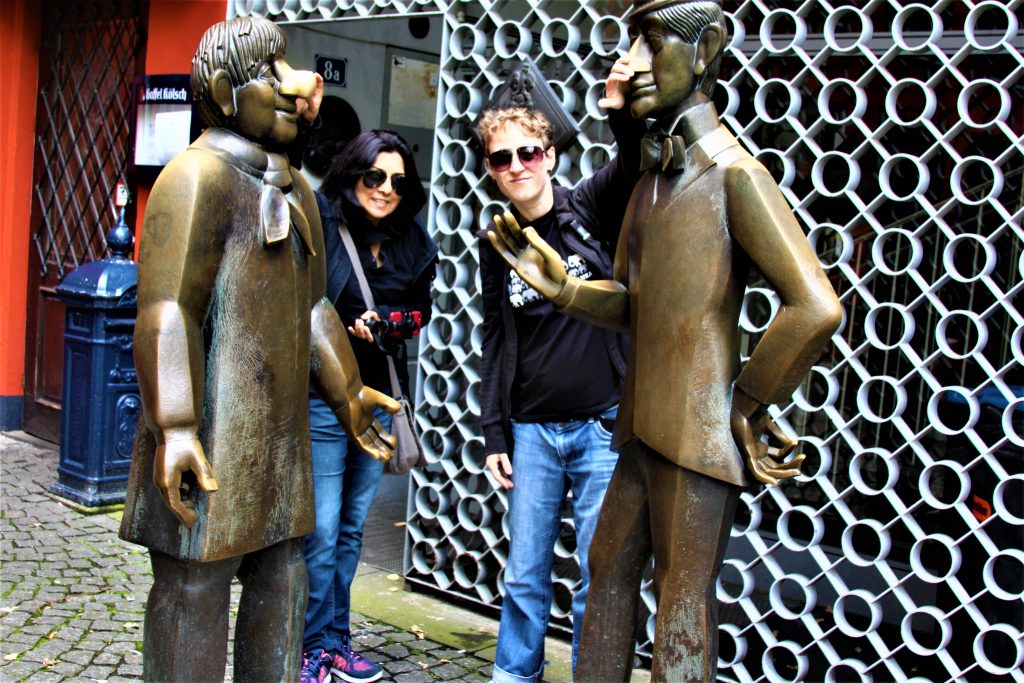
Beer
The Germans are famous for their beer and doesn’t home grown beer taste the best.
You will now have a good idea on how to stay safe, how to get around Germany, how you can budget for your trip and more with this travel guide to Germany: Everything you need to know before you go. We hope you enjoy Germany as much as we did and it won’t be long before you’ll want to be visiting again soon. We can’t wait to get back out there and explore more of Germany.
Where have you visited in Germany? What was your favourite place? Do you have any tips of travelling to Germany that we haven’t mentioned? Let us know, by leaving a comment below.
Do you need inspiration on where to travel in Germany. How about visiting Teufelsberg. Its an abandoned spy station from the cold war Berlin. Its definitely an interesting place to visit.
Things to do in Germany
Continue your Germany travel planning, with these useful posts:
- Free things to do in Cologne
- Free virtual tours
- How to stay safe while travelling
- What to pack in your travel first aid kit
- What to pack in your beach bag
- What to pack in your hand luggage
- Best travel backpacks in 2024
- Must listen travel podcasts in 2024
- What to pack for a day hike
- Inspirational travel quotes
There may be affiliate links within this article, using these links will not cost you anything extra, but we may earn a small commission to help us maintain our travel blog. Thank you for your support.
